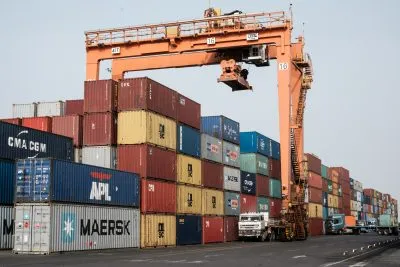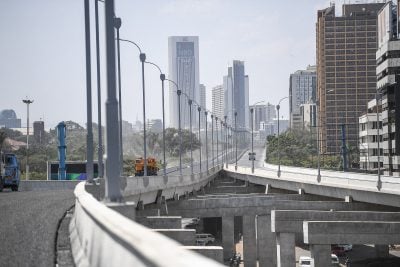Six years after the Chinese had been offered a large piece of land on which to establish one of the five special economic zones it says it wants in Africa, nothing of substance has taken place. Both the Mauritian government and people are running out of patience.
At Riche-Terre, a few kilometres north of the capital, Port-Louis, lies a large plot of land already de-rocked and cleaned and with a good road infrastructure, waiting for the Jin Fei’s special economic zone to start as promised by Prime Minister Navin Ramgoolam back in 2007.
This special economic zone on 211 hectares of land is supposed to house factories engaged in textiles, light engineering, electronics, hotels, hospitals and offices. It would also create 40,000 jobs for the locals and thousands more and indirectly bring in MR25bn ($790m) investment and MR7bn ($221m) worth of exports annually, amongst other benefits. The region was supposed to bubble with economic activities.
So far, Mauritius has already invested MR0.5bn ($16m) on clearing the land and building the road, water and electricity infrastructure. So far nothing more has happened on this land from where hundreds of farmers who, for several decades, have been cultivating vegetables and fruits for the local market, have been removed. Everything is calm at Riche-Terre, except for some animals that are led there to graze.
It all started a decade ago when Tianli Spinning Mills, a Chinese factory operating on the island since 2003 wanted to diversify its activities and produce recycled paper. The government offered Tianli the land at Riche-Terre, suggesting it set up an industrial zone and get involved in a variety of economic activities.
The land was offered earlier to Indians, who declined it. The area was too big for Tianli. It sought the help of the Governor of Shangxi province back home to find enterprises willing to join the group in this new venture.
Three other Chinese entities joined Tianli and the project was renamed Mauritius Jin Fei Economic Trade and Cooperation Zone Co Ltd with Taiyuan Iron and Steel Co Ltd, Shangxi Coking Coal and Tianli in partnership with the China Africa Development Fund as equity partner.
Last chance for Chinese
The Prime Minister Mauritius, Navin Ramgoolam paid an official visit to China in 2007 and discussed the matter with Chinese President Hu Jin Tao. It was reported that Hu was interested and that he promised that Chinese enterprises would invest in the project.
Hu Jin Tao came to Mauritius in February 2009 and in his welcome address, Ramgoolam expressed his country’s delight that the Chinese had chosen Mauritius to set up an economic and trade cooperation zone. He said the project would not only allows for a transfer of capital to Mauritius but, equally, a transfer of technology and knowledge in management and entrepreneurship. At that time, there was considerable talk about economic diplomacy at government level. Ramgoolam and several of his ministers have praised this project as excellent for the island’s economy. Marking the 40th anniversary of the bilateral relations between Mauritius and China in April last, Mauritian Foreign Affairs Minister, Arvin Boolell, took pride that Mauritius would host one of the five special trade and economic zones in Africa proposed under the China-Africa Partnership.
“Our zone is being promoted by the Jin Fei Group. We are currently accelerating efforts for transforming the zone into a knowledge and services hub and regional headquarters, mainly for Chinese firms operating in Africa. We are convinced that given our strategic location of Mauritius, the Jin Fei zone has the attributes of an outward investment platform from China to Africa,” he said.
But when journalists demanded to know when the enterprise would begin, Boolell said: “We’ll give them a last chance”, adding that Mauritius would not wait indefinitely for the group to invest the billions they had promised for Riche-Terre. “Now, it’s up to Jin Fei to take the lead and to answer to the expectations of the Mauritian population,” he declared.
Later, he told African Business that Jin Fei had come in during a very difficult economic context and that things would progress. “We are accelerating our efforts to make this project successful. We have suggested to the Chinese party that we are prepared to become an equity partner with them,” he added.
Return land to farmers
In the meantime, farmers who were ousted from Riche-Terre want back their land because they argue, “many of us are still unemployed after ceding the land to Jin Fei”. Jagdish Goburdhun, from the Mauritius Planters Association, said these farmers had cultivated the land for three or four generations: “Why not give them back their land if Jin Fei does not want it?” he asked. He fears the land may be sold to some land promoter for other development purposes than agriculture. People have been asking questions about the future of the project. Local politicians in particular want details about the agreement linking the Mauritian government to Jin Fei. But till now, they have met a wall of silence because, as African Business learnt, the agreement is secret and confidential. Not even the Board of Investment in Mauritius is willing to inform the population. Its Corporate Communication manager Haliima Soreefan told this correspondent, after several days of silence, that the BOI had stopped communicating to the media on an ad hoc basis and that all information regarding investment in Mauritius was channelled through its monthly bulletin.
The Mauritian government has now set up a committee to work out a new master plan for the development of the project into a service centre. The new idea is to facilitate Chinese interaction with Africa, attract Chinese firms operating in Africa to open their regional headquarters in Mauritius and facilitate the setting up of capacity building initiatives for Africa.
Want to continue reading? Subscribe today.
You've read all your free articles for this month! Subscribe now to enjoy full access to our content.
Digital Monthly
£8.00 / month
Receive full unlimited access to our articles, opinions, podcasts and more.
Digital Yearly
£70.00 / year
Our best value offer - save £26 and gain access to all of our digital content for an entire year!
 Sign in with Google
Sign in with Google 



